Chris Korda
Artist’s Con(tra)ception
25 May - 14 Jul 2024
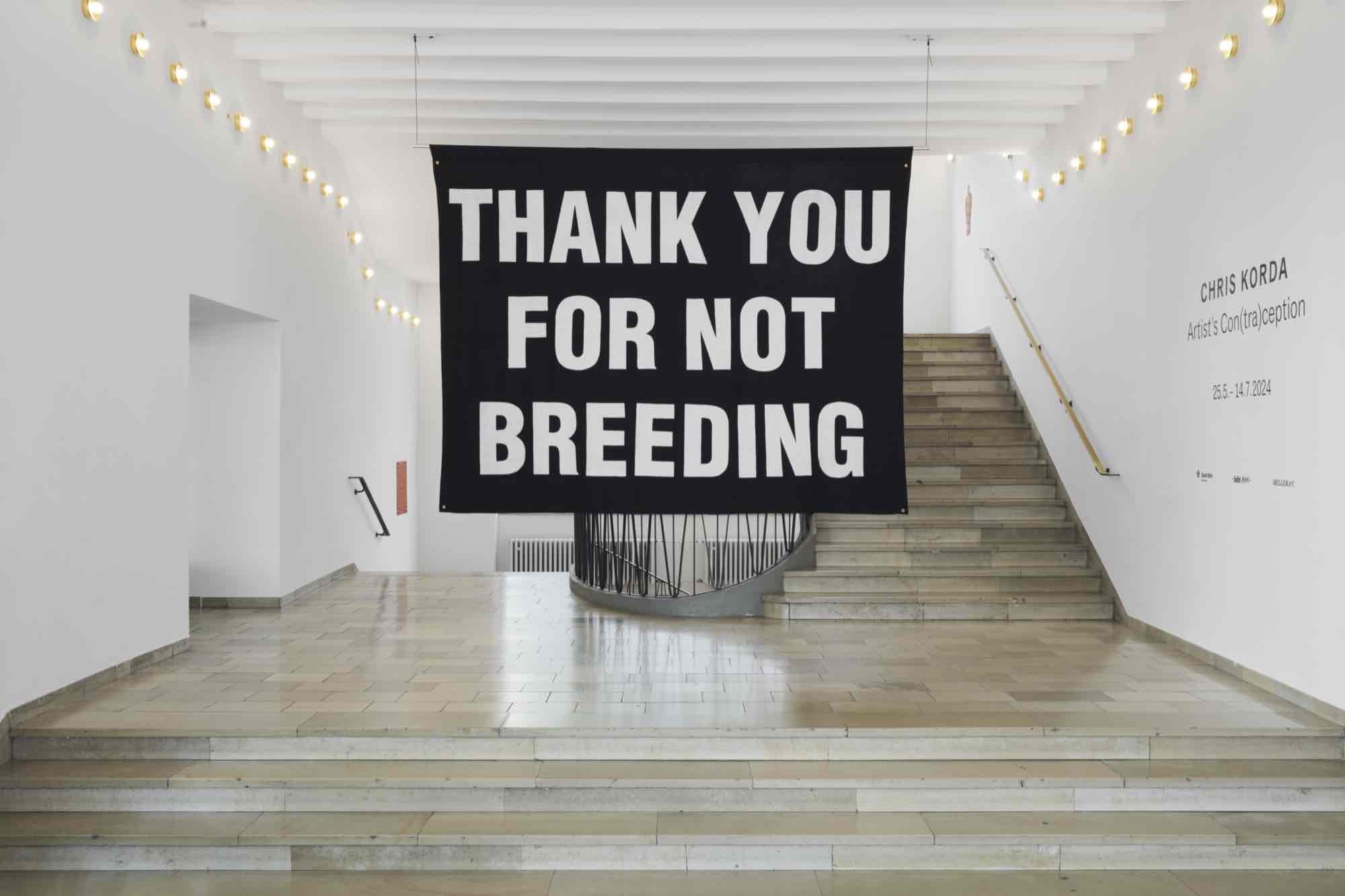
Chris Korda, Artist’s Con(tra)ception. Installation view Kölnischer Kunstverein, 2024. Photo: Mareike Tocha.
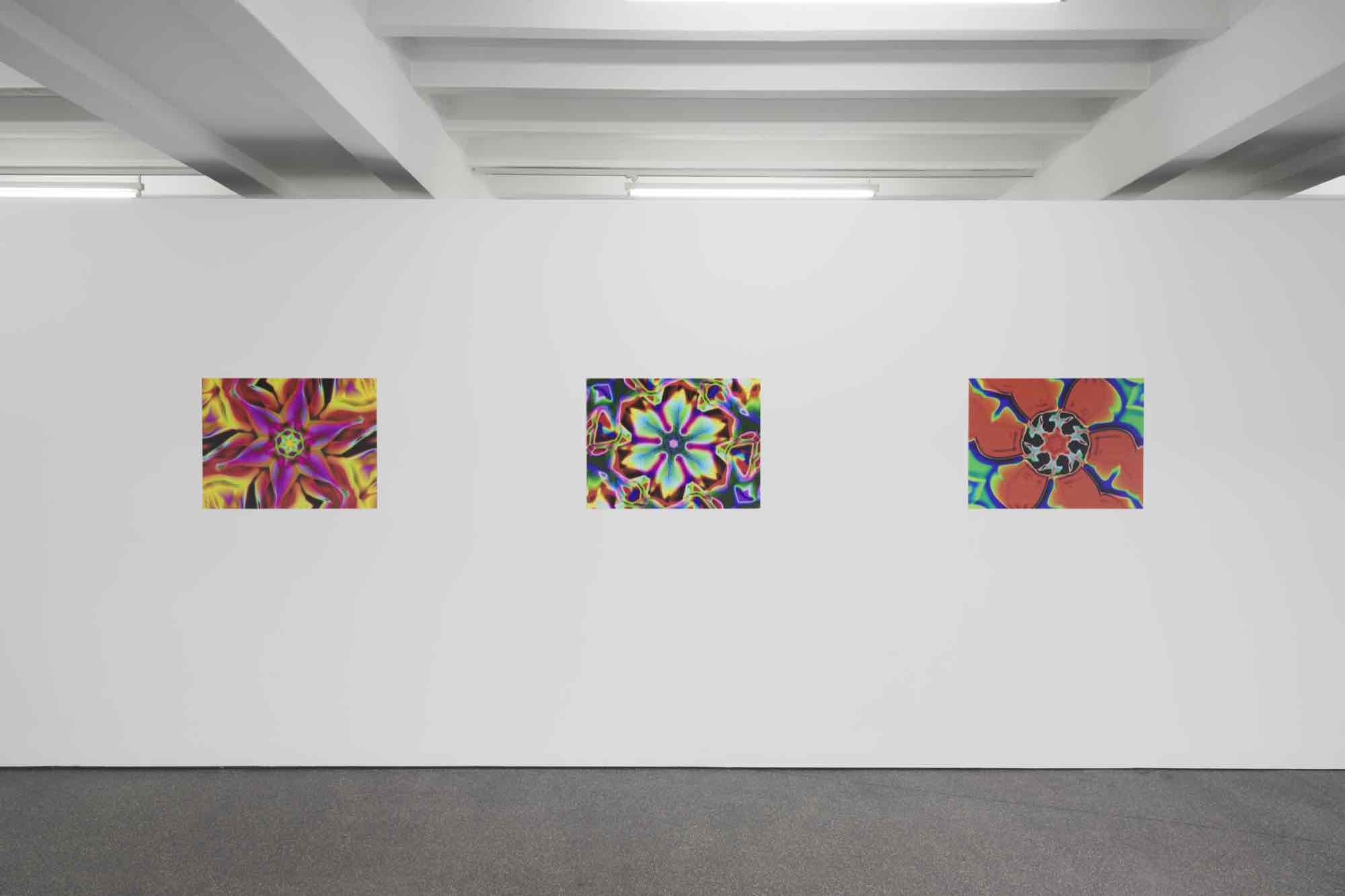
Chris Korda, Artist’s Con(tra)ception. Installation view Kölnischer Kunstverein, 2024. Photo: Mareike Tocha.
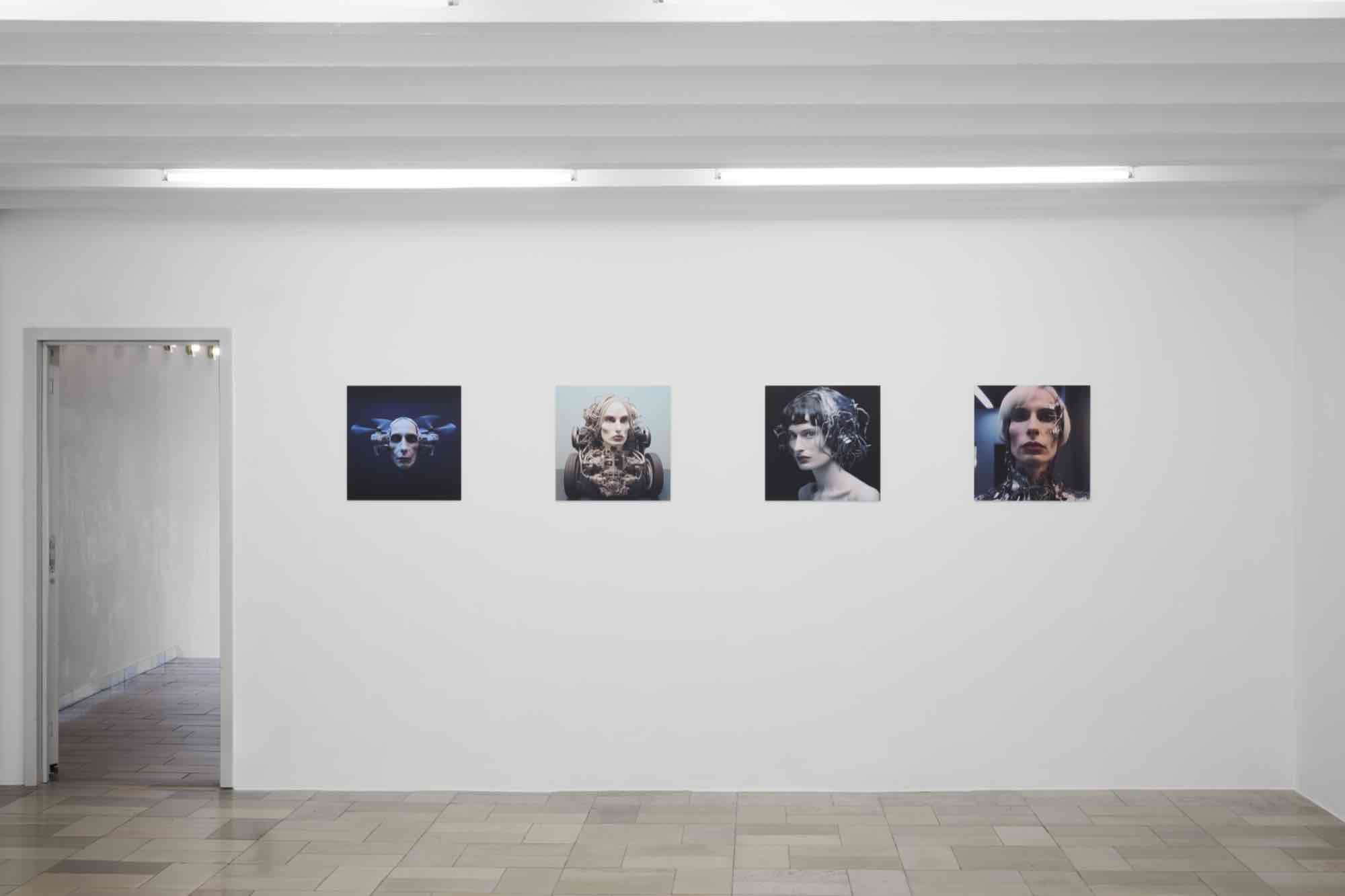
Chris Korda, Artist’s Con(tra)ception. Installation view Kölnischer Kunstverein, 2024. Photo: Mareike Tocha.
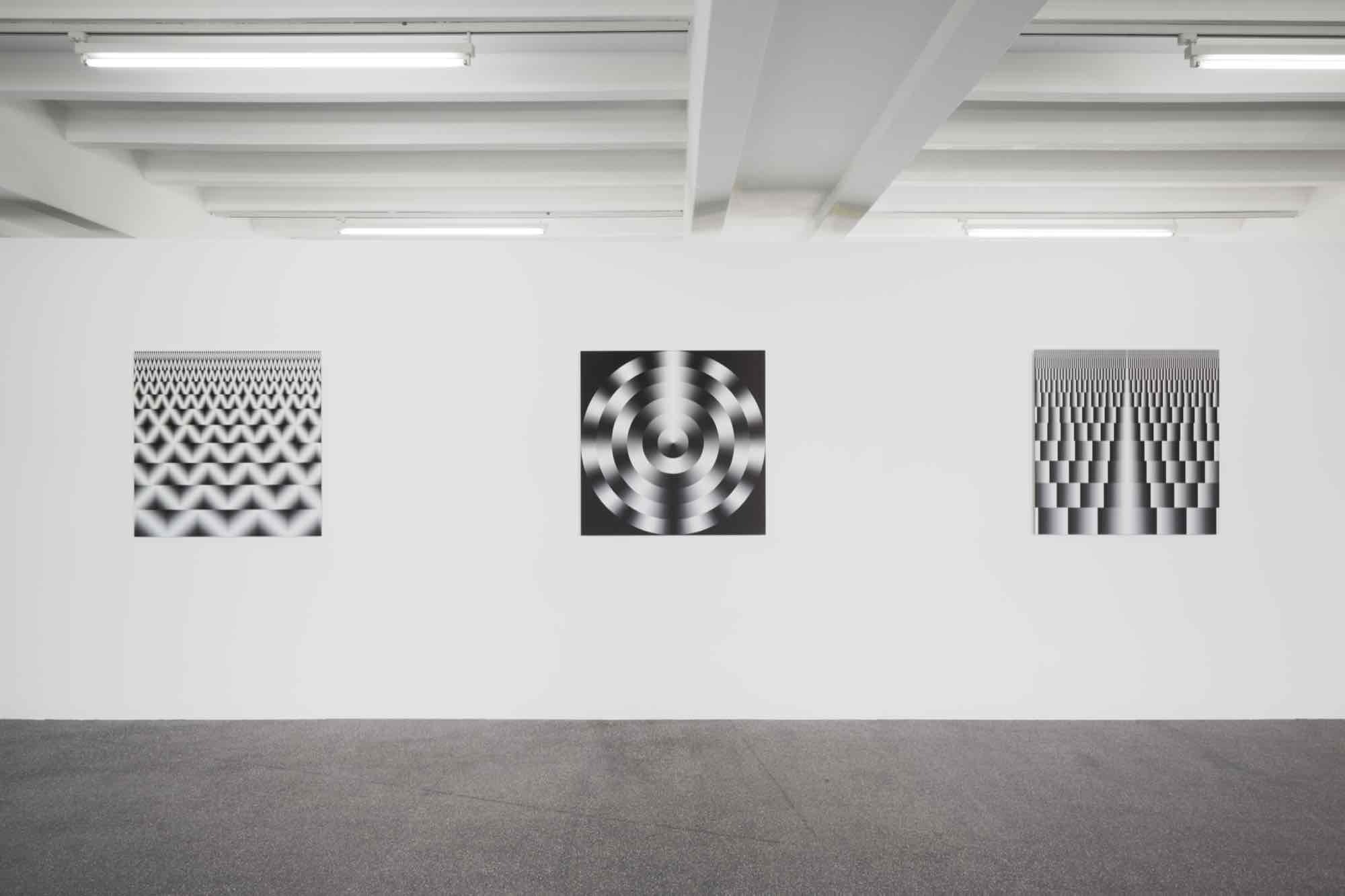
Chris Korda, Artist’s Con(tra)ception. Installation view Kölnischer Kunstverein, 2024. Photo: Mareike Tocha.
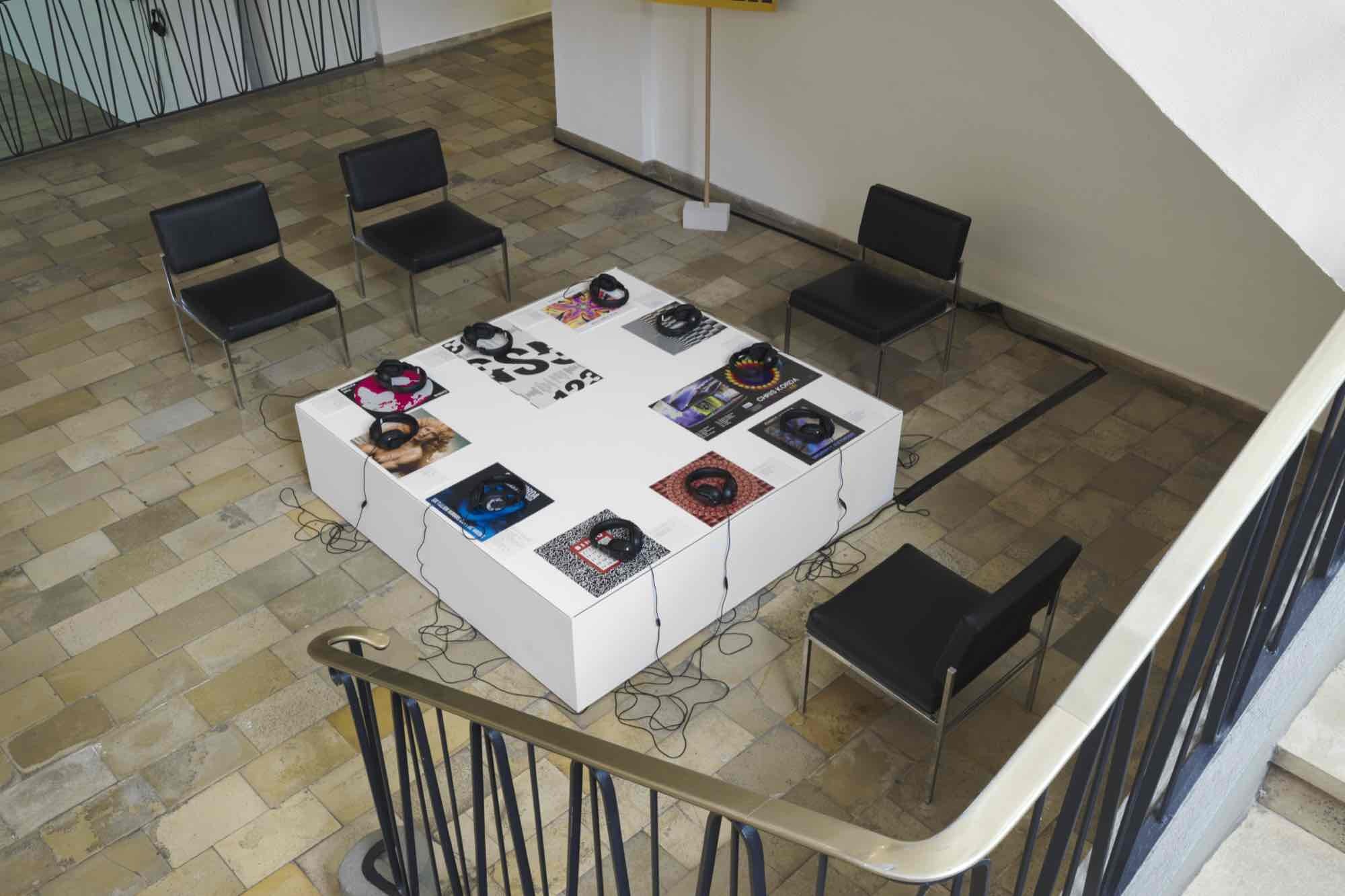
Chris Korda, Artist’s Con(tra)ception. Installation view Kölnischer Kunstverein, 2024. Photo: Mareike Tocha.
Holy Moly! Chris Korda is in the house. Outrageously, insufferably, unbelievably good. Back in 1992 she was haunted by a recurring dream in which an alien intelligence, known as “the Being”, claimed to speak for humanity from another dimension. It warned that our planet’s ecological system was on the verge of collapse. When Korda awoke from the dream, she found herself speaking the words “Save the Planet – Kill Yourself”.
Korda’s mission is based on the conviction that human beings are egocentric and destructive, and must be contained within their limits. With the exhortation, “Thank you for not breeding”, she appeals to our good will. I’m not going to pass on my DNA, I’m getting out of the gene pool. I’ve had it with anthropocentric hubris. Anyone who freely decides to end their life should be allowed to do so, for in so doing they are making a significant contribution. The option of having an abortion is a blessing. Sex is wonderful, as long as it never serves reproduction. Those who insist on eating meat should confine themselves to consuming their own species – killing other living beings is out of the question. The basic tenets of the Church of Euthanasia, which Reverend Korda founded in Boston with Pastor Kim in 1992, are enough to make many people’s hair stand on end. Even the name of the movement can make you wince. Its calls for the extermination of the human species are intemperate, strident and partly contradictory.
While there can be no glossing over the meaning of the church’s name, it is worth bearing in mind that the CoE is based on an anti-authoritarian ethos of non-violence.
Korda founded the CoE because a church is an institution better suited to reforming ethical norms than a political party. Several of its tactics are related to those of the Situationists and the Dadaists: Korda’s actions also aim at intervening in public situations, while her strategies are constantly changing in unexpected ways: she speaks in tongues that both are implacable and admit of contradictions. At the same time, her acts of provocation always remain playful.
By the early 1990s, Korda had already recognised that humanity’s destruction of the environment was irreversible. The issues she was raising then were well ahead of their time: they included calls to live a vegan lifestyle, to curb the limits of economic growth and to proclaim the diversity of all species.
However, Korda is not only a minister of a church. She is many things, foremost among them a musician. In the field of Techno, hers is considered one of the most idiosyncratic and uncompromising positions. She first achieved recognition in Europe in the late 1990s, when DJ Hell from Munich released her work on his label International Gigolo Records.
Korda’s mission is based on the conviction that human beings are egocentric and destructive, and must be contained within their limits. With the exhortation, “Thank you for not breeding”, she appeals to our good will. I’m not going to pass on my DNA, I’m getting out of the gene pool. I’ve had it with anthropocentric hubris. Anyone who freely decides to end their life should be allowed to do so, for in so doing they are making a significant contribution. The option of having an abortion is a blessing. Sex is wonderful, as long as it never serves reproduction. Those who insist on eating meat should confine themselves to consuming their own species – killing other living beings is out of the question. The basic tenets of the Church of Euthanasia, which Reverend Korda founded in Boston with Pastor Kim in 1992, are enough to make many people’s hair stand on end. Even the name of the movement can make you wince. Its calls for the extermination of the human species are intemperate, strident and partly contradictory.
While there can be no glossing over the meaning of the church’s name, it is worth bearing in mind that the CoE is based on an anti-authoritarian ethos of non-violence.
Korda founded the CoE because a church is an institution better suited to reforming ethical norms than a political party. Several of its tactics are related to those of the Situationists and the Dadaists: Korda’s actions also aim at intervening in public situations, while her strategies are constantly changing in unexpected ways: she speaks in tongues that both are implacable and admit of contradictions. At the same time, her acts of provocation always remain playful.
By the early 1990s, Korda had already recognised that humanity’s destruction of the environment was irreversible. The issues she was raising then were well ahead of their time: they included calls to live a vegan lifestyle, to curb the limits of economic growth and to proclaim the diversity of all species.
However, Korda is not only a minister of a church. She is many things, foremost among them a musician. In the field of Techno, hers is considered one of the most idiosyncratic and uncompromising positions. She first achieved recognition in Europe in the late 1990s, when DJ Hell from Munich released her work on his label International Gigolo Records.
